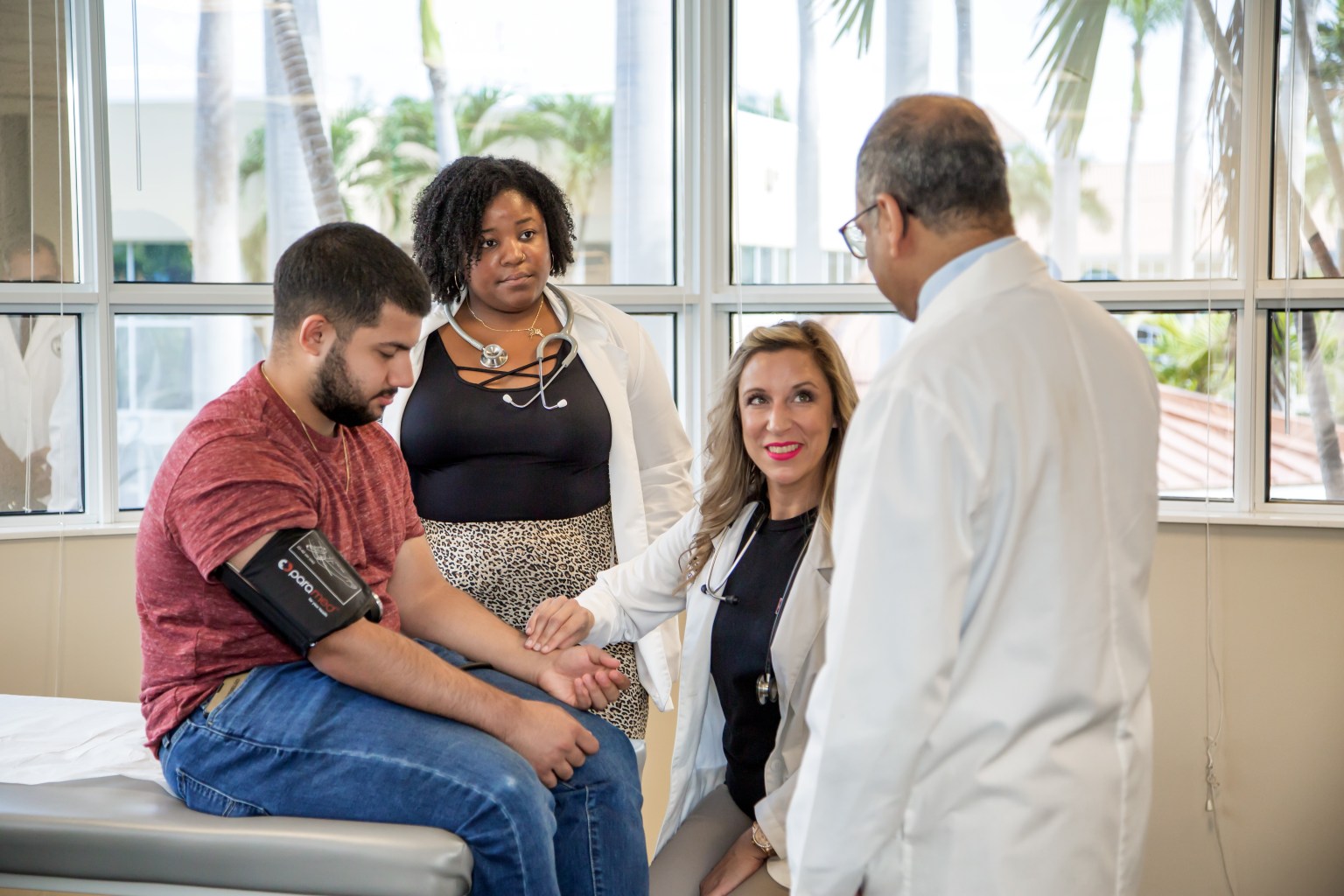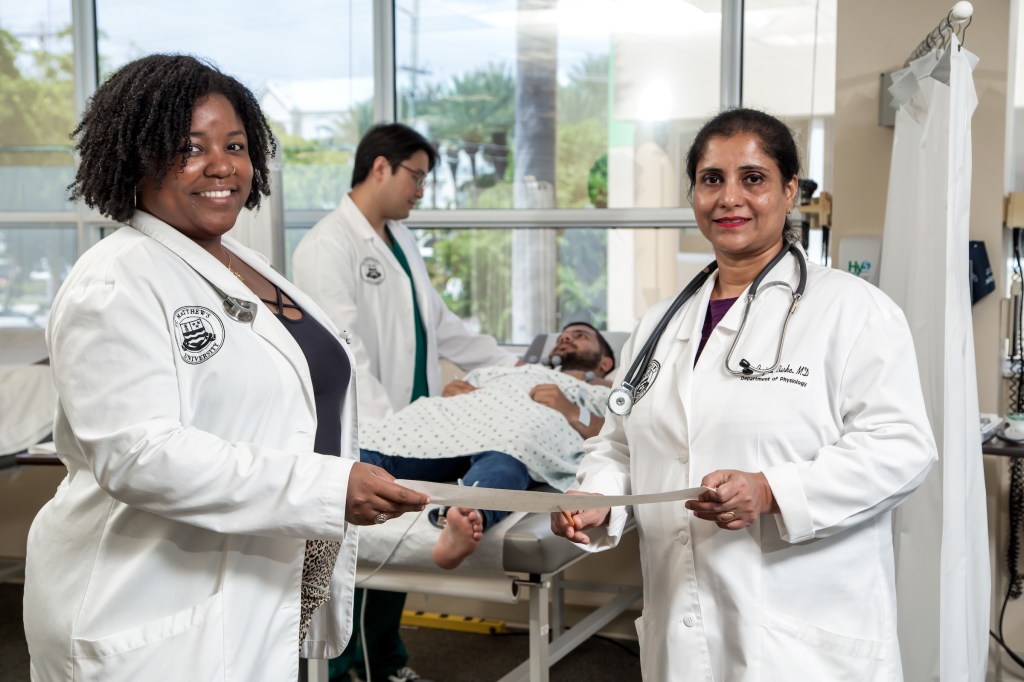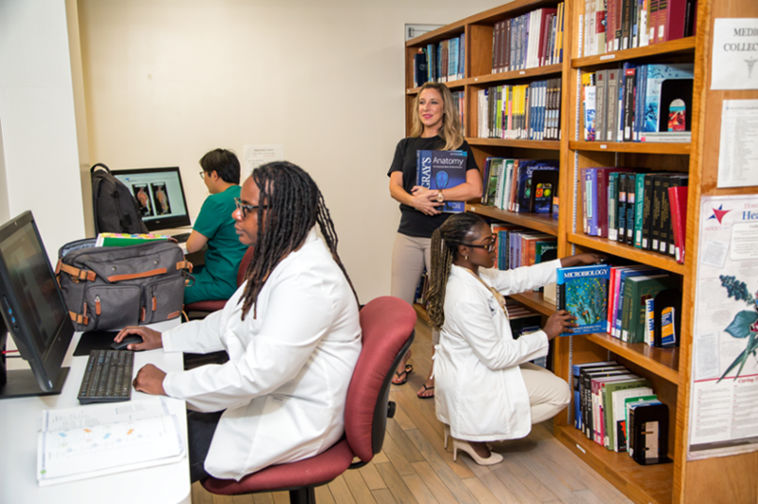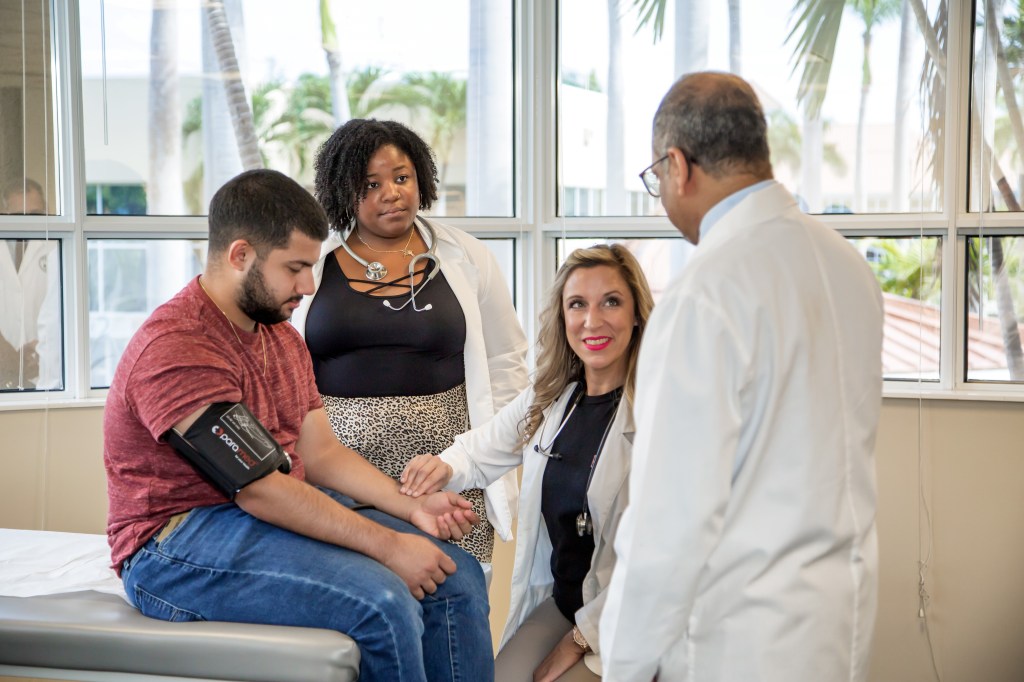
What Traits Make a Great Medical School Student?
Read this blog to learn about the values and attributes needed by successful medical students and practicing doctors.
If you are interested in medical sciences and want to know what makes a good doctor, this article is for you! Medicine is a field that is perfect for those who wish to help people, provide impactful care, solve cases, and achieve positive personal, social and financial outcomes.
However, there are some key things that all future medical doctors should consider before pursuing this pathway. While the rewards can be significant, so are the challenges. These include lengthy educational requirements, rigorous exams and demanding work schedules.
So to make sure you’re ready for the journey, read on to learn more about becoming a medical student and developing the characteristics of a great doctor!
Empathy
Among the first traits that come to mind when we think about successful medical students and doctors are empathy and compassion for others. Because of their empathetic nature, a good physician always considers what’s best for the patient and makes every effort to provide the necessary care. Developing the ability to connect with patients on an emotional level is key to strengthening the passion for healthcare that drives success in medical school and beyond.
Discipline
Discipline is another of the traits of a good student and is especially crucial in medical school. Developing strong study habits is essential to handling the rigorous coursework and clinical training. As a medical school student, you will also have to prepare to become a lifelong learner. Medicine is continually evolving and the best practitioners remain on the cutting edge of new techniques and technologies. Being disciplined in your commitment to gathering and integrating new knowledge will help you succeed in medical school and become the best doctor you can be.
Persistence
Persistence is one of the greatest virtues that a medical student should cultivate. Medical school is demanding, and the journey to becoming a doctor is not short. There will be hurdles along the way, but you should remain persistent and not give up. What makes a good medical student is the ability to push through challenges and stay committed to big-picture goals. Similarly, it is among the traits of a good doctor, as practitioners will encounter professional and diagnostic challenges that are not easily overcome, but persistence will help you stay the course and find solutions.
Humility
Humility is essential to becoming a good doctor and is also important when studying in medical school. No matter what you have achieved, remember there is always much more to learn. Additionally, no one can become a great doctor on their own – being humble enough to ask for support when needed will help you stay on track. Humility will also benefit you when working as part of a larger healthcare team, which can place you outside of your comfort zone and demand adaptability.



Intelligence
Intelligence does not necessarily mean that medical students and doctors always have to be the smartest person in the room. Knowledge is of course essential, but attributes like emotional and collaborative intelligence also play a key role in academic success and the delivery of impactful healthcare. Medical students should strive to get good grades and also develop the strong interpersonal skills that demonstrate other forms of intelligence.
Adaptability
Medical students have to go through years of training, including multiple clinical rotations. You will need to be very flexible and open-minded to be able to succeed in these varied learning settings. Adaptability is also one of the most essential qualities for practicing physicians, as medicine is an ever-evolving field.
In both medical school classrooms and during rotations, students are exposed to a variety of teams and people. You will work with several different professors and attending physicians, all of whom will have their own style and approach to teaching. Therefore, adaptability is key to growth for a great medical student.
Communication Skills
Effective communication is one of the most important characteristics of a good medical student and future doctor. You must be able to clearly explain complex medical concepts to patients, while also listening carefully to their concerns. Strong communication is also essential for collaborating with colleagues, ensuring that patient care is delivered efficiently and with empathy.
In medical school, you will need to articulate your ideas in case presentations, write detailed patient notes and engage in meaningful discussions with peers and mentors. Honing your ability to communicate effectively will not only improve patient outcomes, but also strengthen your professional relationships throughout your career.
Teamwork and Leadership
Medicine is a collaborative profession, and teamwork is critical for success in both medical school and clinical practice. A great doctor knows how to lead when necessary, but also recognises the value of working alongside others, respecting different perspectives and skill sets. Developing strong teamwork and leadership skills are important qualities of a physician, and will help you navigate the challenges of medical training while building trust with colleagues and patients alike.
As a medical student, you will often work in multidisciplinary teams where cooperation and clear communication are essential. Leadership is not just about making decisions – it’s about inspiring confidence, managing responsibility and ensuring the best possible care for patients. The qualities of medical students who succeed often include both the ability to take initiative and the willingness to work as part of a team.
Conclusion
If the attributes described above resonate with you and you are interested in learning more about medical school, be sure to check out St. Matthew’s University School of Medicine (SMUSOM)! Our MD program provides the comprehensive training and individualized support that future doctors need to succeed, including during clinical rotations in the U.S. (core and electives) and Canada (select electives).
Want to hear directly from a practicing physician who graduated from SMUSOM? Check out this testimonial video:
Be sure to contact us with any questions or begin your med school journey by applying today!
FAQs About Important Med Student Characteristics
A medical student stands out through a combination of academic excellence, strong communication skills and a genuine passion for patient care. Those who demonstrate resilience, empathy and adaptability tend to excel in both their studies and clinical rotations. A willingness to learn from every experience and work well within a team is what truly sets a student apart.
A good doctor possesses empathy, adaptability and strong communication skills. Empathy allows them to connect with patients, adaptability helps them navigate complex and unpredictable situations, and strong communication helps ensure clear and effective patient care. These qualities together contribute to both medical excellence and compassionate healthcare.
You can develop necessary attributes by gaining experience in healthcare settings, volunteering and seeking opportunities that challenge you to work with others. Shadowing doctors, taking on leadership roles and practicing active listening can help strengthen your empathy, adaptability and communication skills. Reading medical case studies and reflecting on ethical dilemmas can also enhance your critical thinking and problem-solving abilities.
Medical students come from diverse backgrounds, but many share traits such as resilience, curiosity and a strong sense of responsibility. While some are naturally extroverted leaders, others may be more introspective and detail-oriented – both types can thrive in medicine, as there are so many physician roles to choose from. The key is both a dedication to learning and a deep commitment to meaningful patient care.